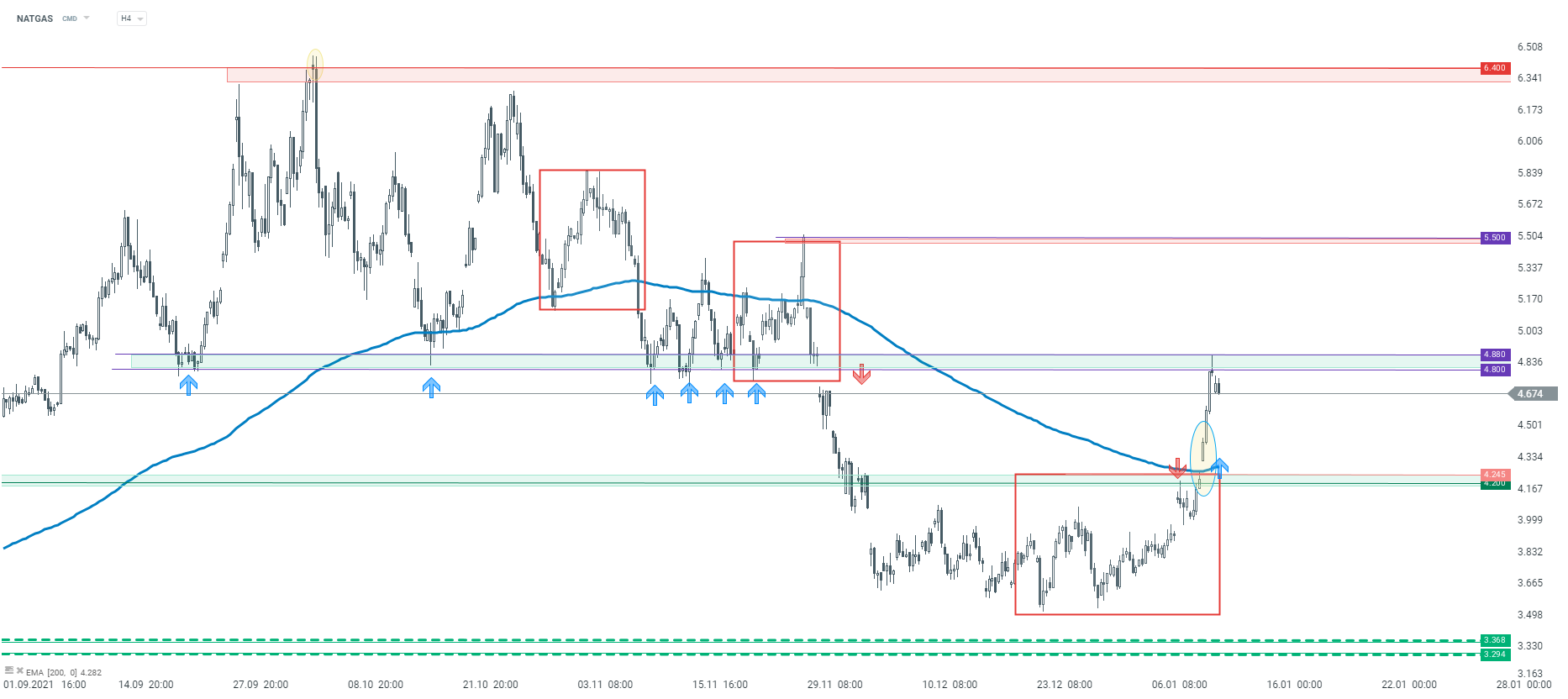US natural gas prices are pulling back today following a massive jump yesterday. NATGAS is trading almost 3% lower today, following price gain of over 13% on Wednesday. Massive jump yesterday was triggered by dropping temperatures in the United States and new forecasts that suggest colder weather ahead. Freezing weather is expected to arrive in the United States this Friday, leading to expectations of increased demand. Given tight natural gas supplies around the world, prices are vulnerable to swings in temperature. The move yesterday is also reasoned with forced liquidation of short positions as quick upward moves caught many traders off guard. However, as the fundamental situation did not change overnight, today's drop can be seen as a reaction to yesterday's price action with traders reloading their portfolios with bearish bets against NATGAS.
Taking a look at NATGAS chart at D1 interval, we can see that commodities launched yesterday's trading with a bullish price gap and continued to rally later on. However, advance was halted at the $4.80 resistance, marked with previous price reactions. From a technical point of view, a break above this area would open the way towards the $5.50 area. On the other hand, should the ongoing correction deepen, the price may pull back and retest the $4.20 area, that should be considered a key support for now.
 Source: xStation5
Source: xStation5

Daily summary: Silver plunges 9% 🚨Indices, crypto and precious metals under pressure

🚨Gold slumps 3% amid markets preparing for Chinese Lunar Year pause

Cocoa falls 2.5% to the lowest level since October 2023 📉

NATGAS muted amid EIA inventories change report


